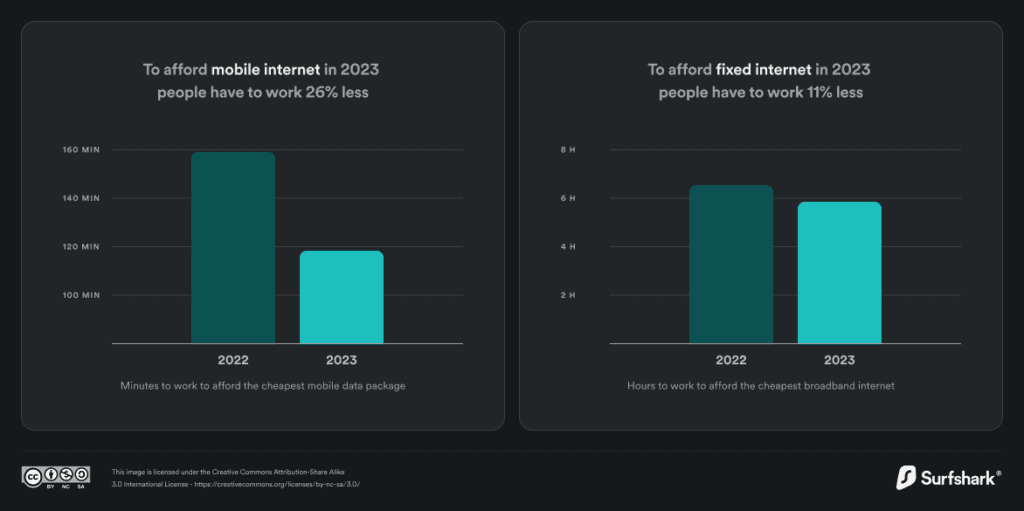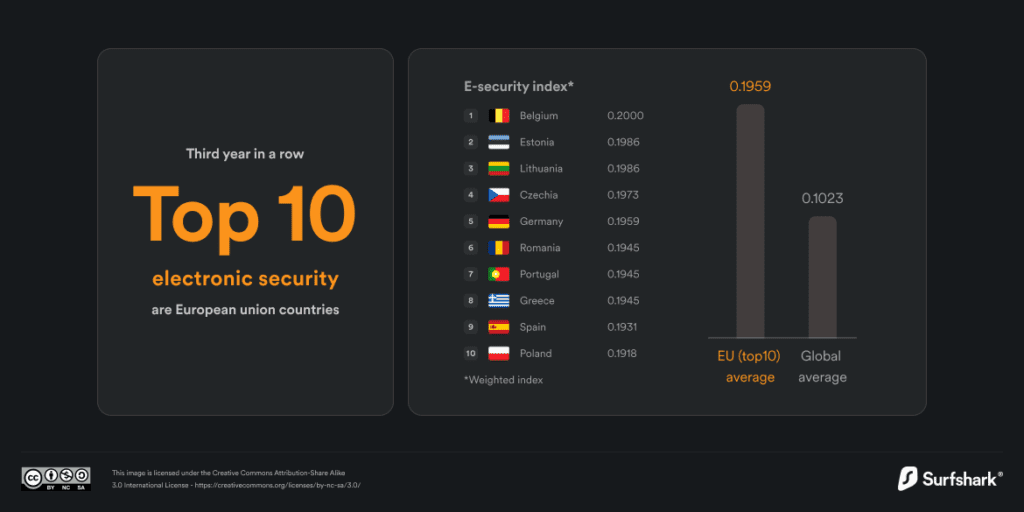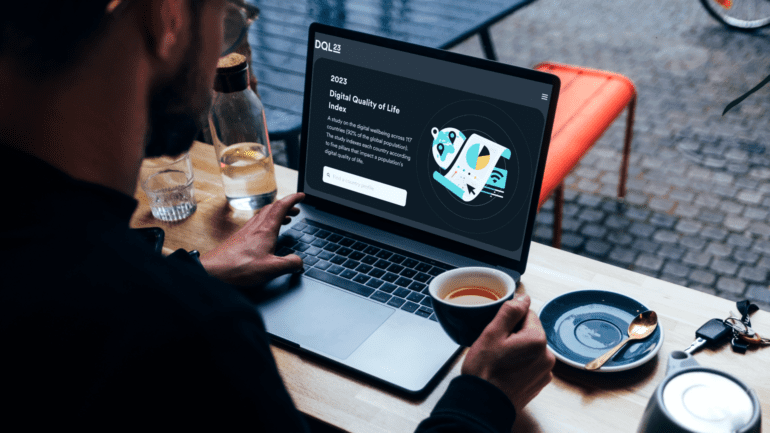South Africa has emerged as the leader in digital quality of life among African nations, according to Surfshark’s 5th annual Digital Quality of Life Index (DQL). However, the country’s global ranking has dipped six places from the previous year, now standing at 72nd out of 121 countries assessed. This index evaluates digital wellbeing based on five core pillars, shedding light on South Africa’s digital landscape.

Internet Affordability a Strong Suit
South Africa’s standout performance comes in the realm of internet affordability, where it secured the 52nd position globally. It’s noteworthy that in today’s world, digital quality of life is inexorably intertwined with overall quality of life, considering the prevalence of online activities encompassing work, education, and leisure.
Gabriele Racaityte-Krasauske, Surfshark’s spokesperson, underscores the importance of pinpointing the areas where a nation’s digital quality of life excels and where improvements are needed, the precise mission of the DQL Index.
Internet Quality Nears Global Average
South Africa’s internet quality closely approaches the global average, with fixed internet averaging 70 Mbps. To put this in perspective, Singapore boasts the world’s fastest fixed internet at 300 Mbps, while Yemen’s is the slowest at 11 Mbps. In the mobile internet category, South Africa achieves an average of 68 Mbps, far from the fastest, the UAE’s 310 Mbps, yet well above the slowest, Venezuela’s 10 Mbps.
Comparing year-on-year data reveals promising trends. Mobile internet speed in South Africa has surged by 30%, while fixed broadband speed has seen a 30% increase. Moreover, South Africa outpaces Kenya by 79% in mobile internet speed and an impressive 228% in fixed broadband speed.
Affordability vs. Other Nations
The affordability of the internet in South Africa is relatively favorable compared to other countries. To afford fixed broadband internet, South Africans must work 1 hour and 43 minutes per month. While this falls below the global average, it remains six times more than in Romania, the world’s leader in affordable fixed internet, where only 18 minutes of work are required each month.
For mobile internet, South Africans need to dedicate 1 hour, 26 minutes, and 1 second monthly. Although still more than the global average, this figure stands at just a fraction of the time Luxembourg residents spend to afford their mobile internet, requiring only 16 minutes each month.

E-Security: A Concern for South Africa
In terms of e-security, South Africa ranks 72nd globally, a decline of seven places from the previous year. This pillar assesses a country’s preparedness to counter cybercrime and the sophistication of its data protection laws. While lagging behind Kenya at 65th, South Africa outperforms Nigeria at 73rd in this category. However, in the global context, South Africa’s preparedness against cybercrime is deemed inadequate, and the country lacks advanced data protection laws.
E-Infrastructure and E-Government
South Africa occupies the 94th position in the e-infrastructure pillar, indicating room for improvement in facilitating daily activities online, such as work, study, and shopping. This dimension evaluates both internet penetration and network readiness. South Africa currently stands at 97th globally in internet penetration and 67th in network readiness.
Conversely, South Africa excels in e-government, ranking as the best in Africa and holding the 61st position worldwide. This pillar measures a government’s digital service advancement and its AI readiness.
Global Trends in Internet Affordability
Notably, the study highlights that the internet has become more affordable globally compared to the previous year. Fixed internet has become 11% more affordable on average, reducing the time people need to work to afford it by 42 minutes per month. Similarly, mobile internet is now 26% more affordable, requiring 41 minutes less work to afford.
Methodology and Data Sources
The DQL Index 2023 assessed 121 nations, representing 92% of the global population, based on five core pillars and 14 indicators. The study relied on open-source information from the United Nations, the World Bank, and other reputable sources. This year’s study expanded its scope to include four additional countries compared to the previous year, underscoring Surfshark’s commitment to global representation.
For a detailed look at South Africa’s digital quality of life profile in the 2023 Digital Quality of Life report and an interactive country comparison tool, visit this link.


